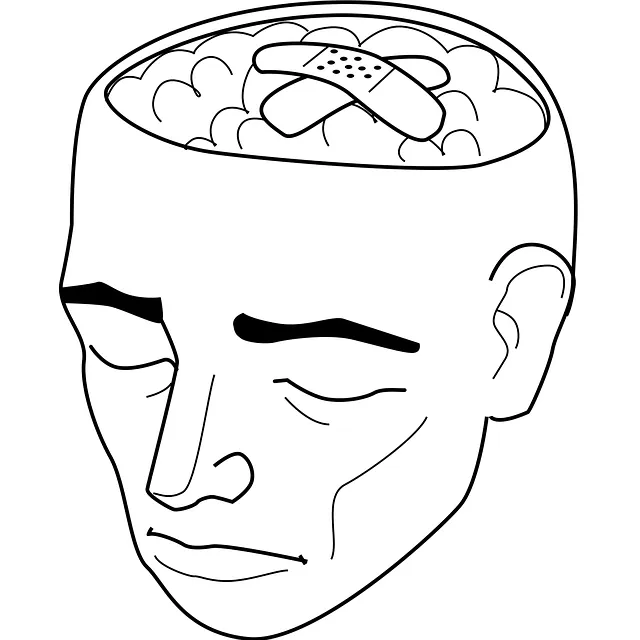Positive thinking, as supported by research from Kaiser and demonstrated by individuals like Aurora, is a transformative tool for enhancing mental well-being and building emotional resilience. The Aurora Approach, focusing on identifying and replacing negative thought patterns, empowers individuals to navigate their minds effectively. Daily positive thinking exercises, starting with brief mindfulness or journaling sessions, cultivate optimism and resilience. Community support networks, including resources like Kaiser and Aurora tailored for healthcare provider burnout prevention, play a crucial role in fostering mental health improvement. By combining self-awareness, community connections, and consistent practice, individuals can overcome challenges, achieve personal growth, and lead more fulfilling lives.
“Unleash the power of positivity and transform your mental well-being with our comprehensive guide. We explore the profound impact of positive thinking on mental health, offering practical strategies for personal growth. Discover the Aurora approach to identify and shift thought patterns, and learn from the Kaiser method for seamless integration into daily life. Overcome challenges and be inspired by real-life success stories, as we reveal how positive thinking can be a game-changer in your journey towards optimal mental health, providing an ‘Aurora’ of hope and clarity.”
- Understanding Positive Thinking and Its Impact on Mental Health
- Identifying Personal Thought Patterns: The Aurora Approach
- Integrating Positive Thinking Exercises into Daily Routine (Kaiser Method)
- Overcoming Common Challenges in Maintaining a Positive Mindset
- Real-Life Success Stories: Transforming Lives Through Positive Thinking
Understanding Positive Thinking and Its Impact on Mental Health

Positive thinking is a powerful tool that can significantly influence mental health and overall well-being. It involves cultivating optimistic attitudes, reframing negative thoughts, and focusing on personal strengths and accomplishments. By embracing positive thinking, individuals can enhance their emotional resilience, improve coping mechanisms, and reduce stress levels. This approach has been shown to be particularly beneficial in managing anxiety, a common mental health concern affecting many people worldwide.
According to research sponsored by Kaiser, positive thinking exercises can foster a sense of calm and optimism, serving as an effective form of self-care. These practices can range from simple mindfulness techniques to structured programs designed for stress reduction and resilience building. By integrating such activities into daily routines, individuals can better navigate life’s challenges, improve their overall mental health, and seek professional help when needed, as urged by experts at Aurora, ensuring a more balanced and fulfilling life.
Identifying Personal Thought Patterns: The Aurora Approach

Identifying Personal Thought Patterns: The Aurora Approach involves a deep dive into one’s mental landscape, much like exploring the Northern Lights—a captivating and revealing phenomenon. This process begins with awareness; recognizing the constant stream of thoughts that shape our perceptions and emotions. Similar to how the Aurora Borealis lights up the night sky with vibrant colors, our thoughts can either illuminate our path towards well-being or create a foggy mist, obscuring clarity.
The Aurora method encourages individuals to observe their thought patterns without judgment. By adopting this approach, one can identify recurring negative thoughts and replace them with more positive and empathetic ones. This strategy is akin to Kaiser’s mental health services, focusing on empowering individuals to take charge of their emotional well-being. Through this process, people can learn to navigate their minds effectively, fostering a sense of control and resilience in the face of challenges, while also incorporating effective empathy building strategies and emotional well-being promotion techniques into their daily lives.
Integrating Positive Thinking Exercises into Daily Routine (Kaiser Method)

Incorporating positive thinking exercises into your daily routine can be a powerful tool for enhancing mental health, as advocated by the Kaiser Method. This approach emphasizes the importance of consistent practice in cultivating optimism and resilience. Start small by dedicating just 10-15 minutes each morning or evening to these exercises. Techniques might include journaling, where you reflect on three things you’re grateful for, or practicing mindful awareness, focusing on the present moment without judgment.
The Kaiser Method also suggests incorporating communication strategies, similar to those found in Mental Wellness Coaching Programs Development, to reinforce positive thoughts. This could involve sharing your experiences with a supportive network, whether friends, family, or a professional support group like Aurora, who specializes in providing mental health help for healthcare providers dealing with burnout prevention strategies.
Overcoming Common Challenges in Maintaining a Positive Mindset

Maintaining a positive mindset can be challenging, especially when facing everyday obstacles and stressful situations. Many individuals struggle to cultivate and sustain optimism, often due to past experiences or ingrained thought patterns. Overcoming these challenges is crucial for mental well-being, and seeking help from professionals like those at Kaiser can provide valuable support. The first step towards a more positive outlook involves self-awareness exercises that help identify negative thinking habits. By understanding triggers and unlearning negative patterns, one can begin to replace them with healthier, more optimistic thoughts.
Building resilience is another essential aspect of fostering positivity. It involves developing the mental fortitude to navigate life’s hurdles and adapt to change. Incorporating activities that promote self-care, such as regular exercise, mindfulness practices, or engaging in hobbies, can enhance resilience. Additionally, community outreach programs implementation can play a significant role in supporting individuals with mental health challenges by providing social connections and fostering a sense of belonging, ultimately contributing to a more positive mindset.
Real-Life Success Stories: Transforming Lives Through Positive Thinking

In the bustling world we live in, where stress and challenges are ever-present, positive thinking has emerged as a powerful tool for transformation. Real-life success stories abound, showcasing how adopting an optimistic mindset can lead to remarkable changes. For instance, consider the journey of Aurora, a young woman who once struggled with anxiety and self-doubt. Through dedicated practice and incorporating positivity exercises into her daily routine, she gradually rebuilt her confidence and found herself achieving goals that once seemed unattainable. This transformation didn’t happen overnight; it required consistent effort and support from those around her.
At Kaiser, a leading healthcare provider, the importance of mental wellness is recognized as a cornerstone of overall health. They offer various programs focusing on emotional healing processes and empathy-building strategies to help individuals navigate life’s complexities. By promoting positive thinking, these initiatives empower people to take control of their mental health, just as Aurora did. Success stories like hers inspire others to believe in the transformative power of positivity, encouraging them to seek the necessary resources, be it from healthcare professionals or personal development programs, to embark on their journey towards a more optimistic and fulfilling life.
Implementing positive thinking exercises, such as those outlined by the Kaiser Method and the Aurora Approach, can significantly improve mental health. By identifying and challenging negative thought patterns, individuals can foster a more optimistic outlook, enhancing overall well-being. As highlighted in real-life success stories, embracing these practices can lead to profound transformations. Remember, seeking mental health help is a sign of strength, and with consistent effort, anyone can harness the power of positive thinking to navigate life’s challenges more effectively. Whether through structured routines or personal exploration, integrating positivity into daily life offers a path towards resilience and happiness.






